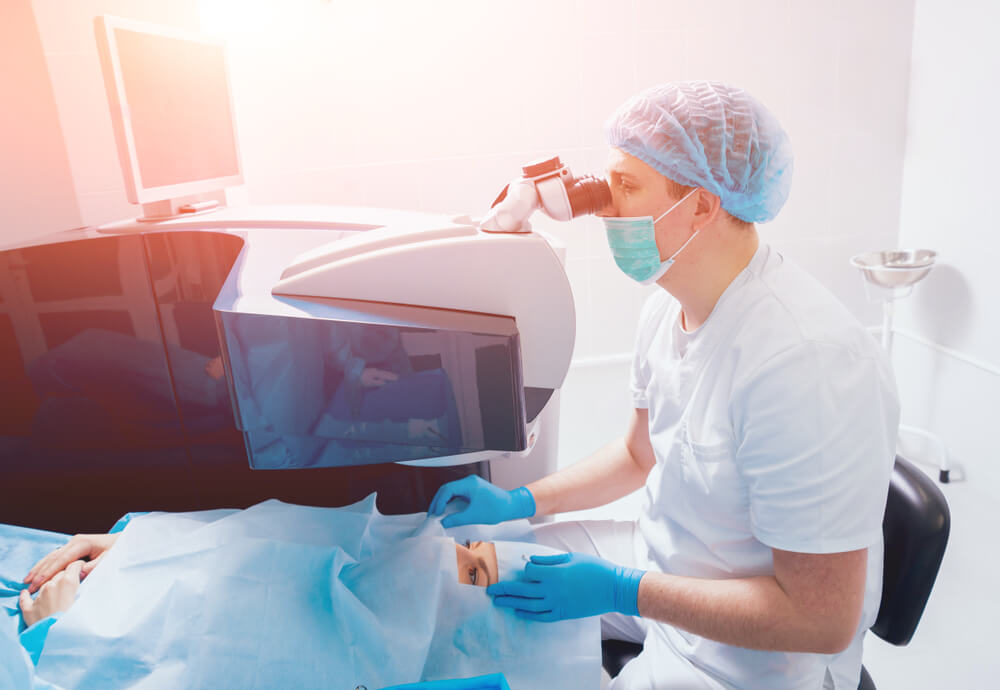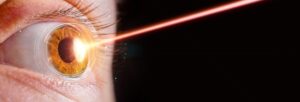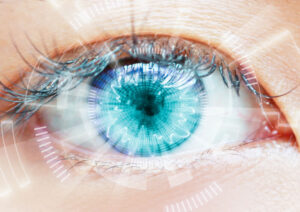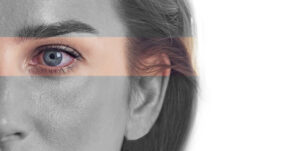
Making the decision to undergo LASIK surgery should be exciting since you will embark on a journey that will help you regain your visual freedom. Still, after establishing that you’re a good candidate, nerves might start to kick in since you will probably be all about preparing for LASIK surgery the right way.
And if you are worried that you might miss something essential before your LASIK surgery, the team here at Diamond Vision has created this comprehensive list where we highlight everything you need to know during your LASIK preparation.
So, what to do before LASIK surgery? Find out below.
How to Prepare for LASIK: Be Honest
Thorough LASIK preparation starts at the very beginning. That said, you should avoid any omissions to your medical history. Put in a little more effort to gather all the info you are required to give to your doctor. Your eye surgeon must have every little detail in your chart. Again, playing down or omitting any medical or ocular issues, allergies, or medications should be avoided. Be thorough, and don’t be selective about the information you disclose. Both you and your doctor want the best medical outcome, and for that to happen, they need every piece of vital info.
What to Do Before LASIK? Drink More Fluids

As you know, the human body comprises about 60% water, which is critical in the healthy functioning of every bodily cell, organ, and tissue. Water keeps the entire body hydrated, helps physical waste management, and above all, promotes healing. When preparing for LASIK, you should remember that laser eye surgery may lead to temporary eye dryness, making it imperative to hydrate from the inside out.
For starters, you can always use OTC artificial tears to help minimize the uncomfortable symptoms of dry eyes.
On the other hand, there’s no real disadvantage to drinking water. As a matter of fact, it’s highly recommended that people drink at least eight eight-oz glasses of water each day.
To that end, drinking alcohol might be a bit counterproductive during your LASIK preparation, especially before surgery. Alcohol can dehydrate the body and can interfere with the medications you are being given for the procedure.
That said, avoid alcohol on the day of your surgery.
Can I Drink Caffeine Before LASIK Surgery?
Patients should remain calm and relaxed during the procedure. Consuming caffeine can lead to dehydration, and even worse, it can make patients feel jittery and may impair their ability to be completely still during surgery.
About Alcohol During LASIK Preparation
Honestly, there are no restrictions regarding what patients can or cannot drink in the time period leading up to surgery. Still, as mentioned before, on the day of surgery, patients should refrain from consuming alcohol.
For starters, alcohol, just like caffeine, dehydrates the body, which may lead to dryness in your eyes. Avoiding alcohol is even more recommended if you frequently deal with vision problems such as dry eyes.
Also, you will be given a specific oral sedative before surgery, which you don’t want to mix with alcohol. And even though you will be calm and relaxed, you will still be conscious during the surgery, and alcohol can make focusing on simple things more challenging.
Using Eye Drops Before LASIK
When attending your initial consultation with our experts, your tear film will be one of the first factors we’ll examine to see whether you’re a good candidate. There are several medical conditions and medical compounds that can cause people to be more susceptible to dryness.
And to improve tear film quality in the patient’s eyes, it may be necessary to use over-the-counter artificial tears. If patients are already using medicated eye drops, they should talk to their doctor about that, so the expert can make corrections and give out instructions on how to use these drops during the days leading up to surgery and even on the day of the intervention.
On the other hand, decongestants or allergy eye drops should be avoided on the day of the intervention when preparing for LASIK. However, their usage can be resumed right after surgery the next day.
Don’t Wear Your Contacts Before LASIK Surgery
For those who wear contacts, LASIK preparation can be more challenging. Patients will be asked to stop wearing their contacts before LASIK surgery, and how long they’ll need to abstain from wearing them will depend on the material they’re made of.
Those wearing soft lenses will stop using their contacts for five to seven days before the pre-operative eye exam and surgery. On the other hand, those wearing toric lenses will need to keep them off for ten to 14 days.
Generally, contact lens wearers wonder why they need to stop wearing their contacts as a part of their LASIK preparation. Leaving your contacts off is essential before it can potentially distort the shape of the cornea, and proper corneal measurements are essential for accurate LASIK calculations.
Apart from slightly distorting the shape of the cornea, contacts generally also harbor bacteria, no matter how good patients care for them. Needless to say, said bacteria can increase infection risks which is another reason why patients should stay away from their contacts before LASIK surgery.
Wearing Glasses Before LASIK Surgery?
While contacts are a no, wearing glasses mostly depends on your prescription and how badly you need corrective lenses to function daily. For those with high prescriptions, not wearing contacts can be challenging leading up to LASIK. Therefore, those who can’t go about their everyday life during LASIK preparation should at least wear proper glasses.
Don’t Go Alone
Before LASIK surgery, ask a friend or family member to drive you to your appointment. Following LASIK, your vision will be blurry, you’ll feel groggy from the sedative, and you’ll want your family member or friend to drive you home.
Avoid Perfume, Makeup, and Fragrances
Makeup might interfere with the lasers and medications used during the intervention, so you shouldn’t put on any on the day of the operation. Also, avoid scented products that day. These fragrances and perfumes can interfere with air quality, which is strictly regulated in these practices to control humidity, temperature, and purity.
The Flu and LASIK

If you’ve managed to catch the flu before LASIK, you will usually be able to have the surgery, given that you’ve fully recovered by the surgery appointment. Just ensure you drink enough water and fluids to keep yourself hydrated.
Don’t Skip Mental Preparation
While you will be given a sedative before LASIK to take the edge off, you will be fully awake during the intervention. You will need to be alert and pay attention. Some people might get a bit nervous because of this, but it’s pretty exciting to see what’s happening during LASIK. As such, take your time and mentally and physically prepare for the intervention.
Lastly, you should also ask your doctor about post-op care to make a fast recovery and enjoy your newfound visual freedom.
We’re Always Here for Your Questions
Hopefully, we’ve managed to answer most of your questions. In reality, there aren’t that many things you need to think about while you prepare for your laser eye intervention. Still, don’t forget to eat at least something before you show up.
So, if you have any more concerns or questions regarding LASIK and surgery preparation or post-op care, feel free to schedule your free consultation with us so we can go over everything that interests you.
Contact Us
If you have more questions about LASIK procedures, get in touch with us.
Related Blogs

Who Should Not Have Laser Eye Surgery
Laser eye surgery, commonly known as LASIK (Laser-Assisted In Situ Keratomileusis), has revolutionized the world of vision correction. It’s a procedure that has enabled millions

LASIK eye surgery: What is LASIK and how does it work?
What Is LASIK? Experts categorize LASIK as a refractive eye surgery in which lasers are used to correct vision problems. LASIK corrects several refractive errors,

Everything You Need To Know About The Lipiflow Treatment
LipiFlow is often referred to as a ground-breaking technology that is able to treat dry eye issues caused by meibomian gland dysfunction, or MGD. Experts
